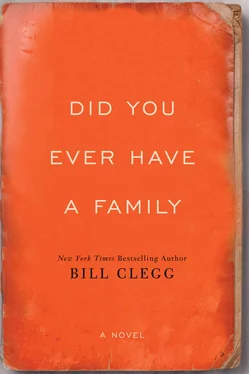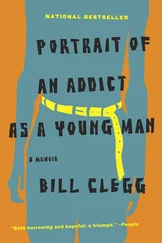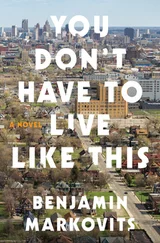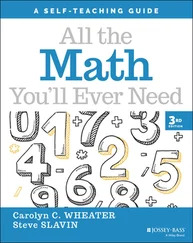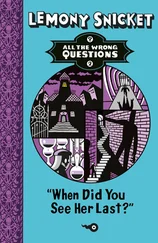We sent Robert to boarding school when he was fifteen, which was when Kay’s cancer came back and had spread to her lymph nodes. This time it was stage four and we panicked. The girls were eight by then and we reasoned that if Robert could focus on high school away from the chaos, it would be better for him. He had few friends, and Tim had left for Harkness the year before. Robert wanted to go, too, but at the time we didn’t take the idea seriously. It was expensive and in the hills of Connecticut, where none of us had ever been. But a year later we felt under siege. We told ourselves it was what he wanted, and on some level by then I think we trusted his instincts about how he should be raised better than our own, so we said yes. What we didn’t know was that by that time Tim had become quite the little drug czar at Harkness. I don’t blame Tim, though for a long time I did. I’ve since learned that addicts are born, not made, so if it wasn’t coke and heroin at Harkness, it might have been liquor and pills in Atlanta. Who knows. What I do know is that when I got the phone call from the headmaster at Harkness telling me that Robert had overdosed on drugs and was in a coma at the local hospital, I thought it was a joke. I’d never seen my son smoke a cigarette or even sip a beer. He was a straight-A student and played trumpet in the school marching band. He was a homebody and scarcely made a peep. The headmaster walked me through the prior twenty-four hours — a hiking trip that Tim and Robert and another student did not return from, a search party, a woman calling the police when she heard voices in her barn, and finding Robert unconscious when they arrived and the two other boys running away down the back field. You need to come right away, the headmaster said, and so I did.
After I landed in Hartford, checked into the motel in Wells, and visited Robert at the hospital, I saw clearly that the situation could change at any moment. My sister and mother moved in with Kay and the girls, and we agreed I should stay put until, hopefully, Robert could be moved — back home or to a rehab somewhere. I was out of my mind. I remember that strange little motel — with a girl’s name, the Betsy — with bad art on the walls and orange Dial soap in the shower and by the sink. Not the little motel-size soaps, but the big, thick ones you buy in a grocery store. Something about that place was makeshift; definitely not a chain motel. It was clean and quiet and I spent the first two weeks coming back at night from the hospital and wondering how on earth I’d ended up in this room with flowers painted on the headboard and my son in a coma on the other side of this white, Norman Rockwell Connecticut town. Not until after Robert came out of the coma and was eventually moved from the ICU to the rehab unit did I see that motel room in daylight. This was when I met Lydia.
There is always one who goes away. This is what Mimi first said when Will sat us down his junior year in high school to tell us he wanted to go to college on the East Coast. His sister went to Reed, which felt like a world away, and his brother went to the University of Puget Sound in Tacoma. Both were within driving distance of Moclips, where we lived and raised our family: one north, one south. It was selfish of us, but we’d hoped Will would do the same. Don’t get me wrong: we wanted them to go where they wanted to go, but our kids have been our life for the last two decades — we’ve been a team — and the change is hard. Both Mimi and I are only children and had parents who died young, so our kids are it. Maybe we just got lucky. Our kids were always great, better company even in their teens than most adults we know. Maybe it sounds unhealthy, or codependent, but it’s true. Will’s sister, Pru, took an interest in gardening when she was nine and inspired all of us to start seeding vegetables and herbs in the winter to plant in the spring. She organized a system of mulching that Mimi and I still follow to the letter today. By the time Pru left for college every one of us could have showed up on an organic farm anywhere ready to go to work. And Mike, Will’s older brother, he’s been turning us on to all kinds of new music since he was in the third grade. Through Mike we started listening to indie singer-songwriters like Ray LaMontagne and Cat Power. Through Mike we first heard Moby and then later Phoenix and Daft Punk. He also introduced us to the music of our own generation, which we for the most part missed: Sex Pistols, Kate Bush, Joy Division, Blondie. Lately he’s fixated on eighties metal bands like AC/DC and Def Leppard, and that’s where we part ways. And Will, he was more alert to what was happening politically and socially in the world than any of us. From an early age he was committed to the environment, the homeless. Later, he became obsessed with Rachel Corrie, the activist from Olympia who was killed by an IDF bulldozer while protesting the demolition of Palestinian homes. He followed every beat of that story: after she was killed the censorship in New York of the play based on her writings, the stonewalling of the US Congress to block an investigation into her death. Will was fourteen and writing letters to our congressman, letters of support to the Corrie family, insisting our whole family attend the rallies and memorials in her honor. He was a committed kid. He marched, he sat in, he sang, he organized. And we joined him. Neither Mimi nor I had ever been terribly political, but with Will he just brought these issues to life, and his sense of urgency and injustice and responsibility was infectious. His brother and sister teased him a little, but before they left for college, and even after, they showed up to nearly everything he asked them to. They were even arrested with Will when they chained themselves to a homeless shelter in Olympia that was scheduled for demolition due to budget cuts and a plan to develop the land where it stood. Mimi and I got the call from Mike, and we dropped everything right away to bail them out. We were not angry with them or disappointed. Just the opposite. The three of them chained to each other in support of something they believed in was evidence to us that, as parents, we’d done something right.
So when Will told us he wanted to go to Amherst College, we were speechless. Tucked away in the hills of Massachusetts, the school might as well have been on Mars as far as we were concerned. Still, Will broke it to us sweetly, and the three of us cried and decided to call his sister and brother together to give them the news. It was the last year we lived in the house in Moclips. When Will left for college, we sold it to a couple who taught at the college in Aberdeen. They were newly married and planning a family, and what better fit could we have found. As teachers ourselves, elementary school, not college, we thought it was a good omen. We had bought the place from a widow who had never had children with her husband, but from what we gathered over the years, they’d been a tight pair, good people. We would still see her all the time, walking the road between the Moonstone where she worked and her sister’s place, but Cissy was never much for small talk. We thought she was on the rude side of things when we first met her. We imagined that maybe she was holding a grudge against the young family who barged into her home and took over, but once we got to know Cissy, we began to understand that this was just her way. She didn’t have a lot to say. After we moved in, she still came around, flipped the fuse switch when the power blew, jiggled the toilet just so when it wouldn’t flush, even would bring overflow of firewood and kindling from her place to our porch in the winters. The one time I tried to pay her for cleaning the gutters she turned her back to me and walked away.
Читать дальше
